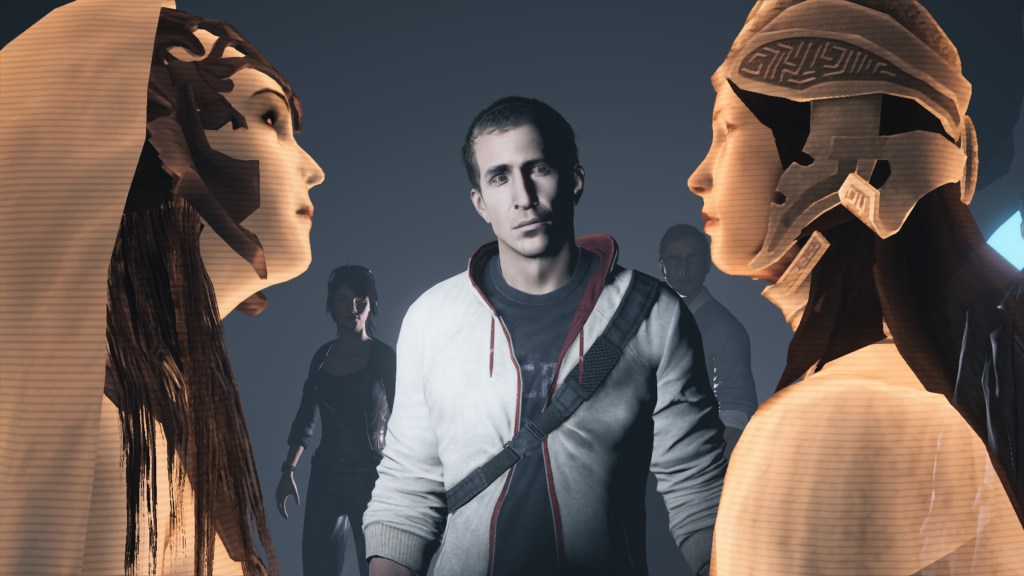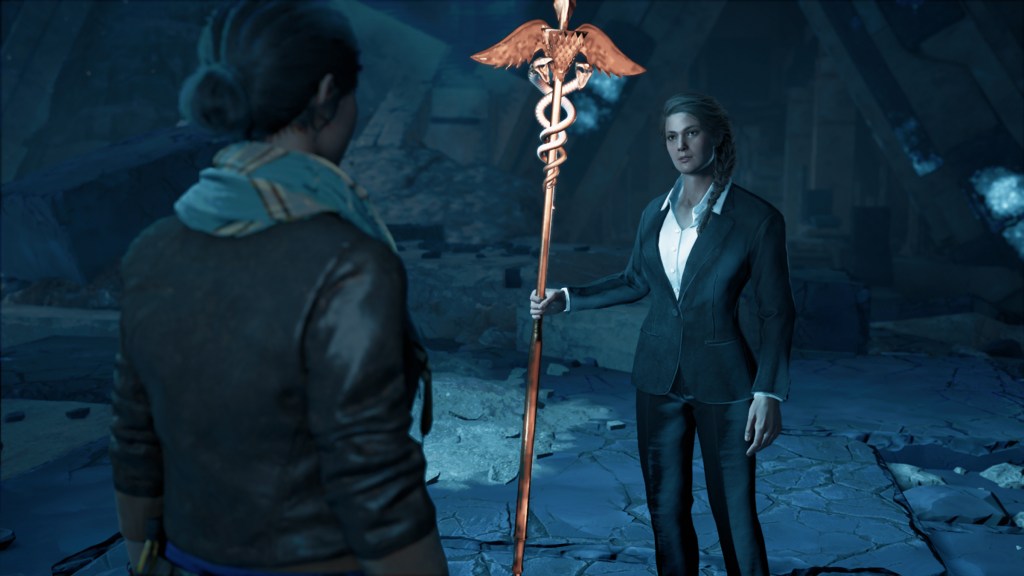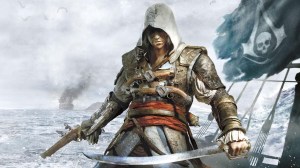Assassin’s Creed’s early trailers were incredible and likely set the series up for success right out of the gate. They offered glimpses at a creative new world that seemed to be taking advantage of the incoming next generation of hardware more than most other games. In addition to the spectacle and Altair’s flashy prowess with a blade, they also contained small glitches that teased something more. These ended up foreshadowing the modern-day elements that would be present in just about every entry afterward. And while that premise of a dual storyline initially added an extra layer of intrigue, these segments have only turned into an albatross hanging around the series’ hood-covered neck.
Videos by ComicBook.com
It didn’t start out on the worst footing, though. The mystery of Desmond Miles’ imprisonment at Abstergo Industries and his gradual belief in the cause over his five games was more or less interesting because of this arc and his supporting group of ragtag rebels. However, even these games began to show the cracks in the foundation for the modern-day sections that would only grow deeper as time went on as it all started to buckle under its lore.
There was plenty of filler, especially in Revelations’ case. They didn’t always make sense and frequently put too much weight on cliffhangers. Delving into the Isu people and all of that apocalyptic nonsense added so much unnecessary narrative bloat and only seemed designed to add a ton of sensationalized Easter eggs that didn’t always get a clear explanation. It gave the illusion of depth, but it was truly just distracting from the main stories that took place within the Animus.
Assassin’s Creed’s Modern-Day Stories Only Got Worse After Desmond’s Death

Desmond’s arc at least had some sort of vision behind it and a beginning, middle, and end, as silly as it often was. But what followed lacked even this general foresight and charm and is when the modern segments felt even more like an obligation. Unity, Syndicate, and Rogue barely touched on these elements to the point where it seemed as though Ubisoft forgot about them until the last minute. Black Flag at least satirized Ubisoft and had an entertaining premise that opened the door for some decent jokes (like the out-of-touch executive that doesn’t understand the series). Yet even these segments just ripped players out of the Caribbean and didn’t live up to their premise, thanks to a mute avatar and the lack of follow-up in later entries.
Origins seemed to try and address the lack of a coherent plan for these sections by introducing Layla Hassan, its take on a central Desmond-like contemporary protagonist. She was charismatic enough and stuck around for a few games like her Nolan North-voiced spiritual predecessor, but her lackluster teammates and sanitized dialogue meant it was difficult to care about her portion of the story. It was filler with more care put into it, but it was still filler.
Assassin’s Creed’s Modern-Day Story Won’t Have a Satisfying Ending (if There’s One at All)

Odyssey’s later DLC episodes and Valhalla marked when these present-day segments jumped the shark, as they both became inundated with ridiculous plot threads. Odyssey’s Kassandra turning into an immortal being and Valhalla’s Basim being a version of Loki who warped into the current age were ludicrous developments that demonstrate the larger issue at play with Assassin’s Creed’s modern segments: It’s difficult to write a compelling story that isn’t supposed to end. These portions just build and build but can’t properly yield a climax because they have to support the endless struggle between the Assassins and Templars. This opens the door for outlandish twists that take years to get even the tiniest crumb of a resolution, if they get any at all. For example, Shadows does nothing meaningful to continue what happened in Valhalla or Mirage, so those threads are still left dangling years later.
Silly twists and glacial pacing are frustrating and the antithesis of quality storytelling, and the focus on unrelatable narratives this abstract doesn’t help the series, either. Zooming way out and speaking to ancient wars and a dead race of godly people loses the character-driven intimacy that’s often at the heart of a memorable video game story.
It is almost impossible to care about these deified holograms or a ceaseless conflict that doesn’t change, yet it is easy to care about Bayek, Kassandra, or Ezio and the struggles they go through in their respective time periods. Bayek and his wife Aya grieving their child and trying to figure out how to move on is more engaging than learning about how the Isu imploded. The modern-day segments have always prioritized the greater picture at the expense of the characters, and it’s only gotten more extreme after Desmond’s death as the series flails to fill the hole he left. They are designed to be unnecessary distractions and are why they have been flawed from the start.
The mandate to churn away and support a storyline that sporadically moves forward at a sluggish pace showcases the follies of Assassin’s Creed’s modern-day threads. It started out as a novel twist for the first game, but it has significantly harmed the series’ overall narrative since these portions intermittently have to take focus away from the main plot to loudly say nothing. Assassin’s Creed never needed these parts to begin with, and this has been more and more clear with each passing game.
What do you think? Leave a comment below and join the conversation now in the ComicBook Forum!









